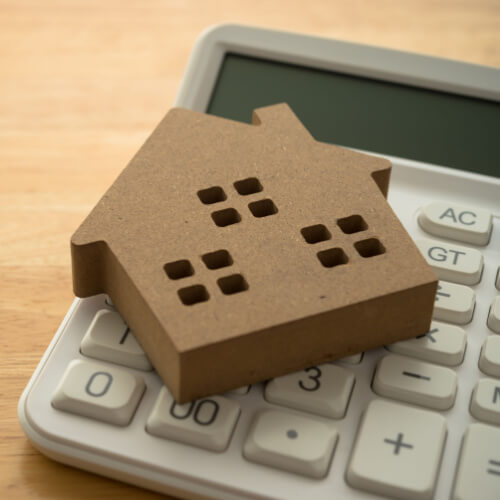 Written by James Hurwood
Written by James Hurwood
Reviewed by Stephen Zeller
Last updated 08/01/2024
Calculations are provided by VisionAbacus Pty Ltd ACN 140 627 765 (VisionAbacus). Whilst every care is taken to ensure the accuracy of the information as a guide for costing, no responsibility is accepted by VisionAbacus for its accuracy. Please check with a mortgage broker, accountant, financial advisor or other suitably qualified professional for an accurate estimate. Compare the Market Pty Ltd takes no responsibility for the calculations or information provided on this website by VisionAbacus nor any liability for the accuracy of or reliance upon or use of such calculations or information. Before deciding to purchase any product you should calculate the actual costs (as the calculators contain general information only and may not suit your particular circumstances) and read the relevant product terms and conditions. Calculations are not an offer of credit and don’t include any applicable fees.
![]()
As our General Manager of Money, Stephen Zeller wants to help borrowers manage their home loan in a way that best suits them and their financial situation. He has some tips to try and help undecided borrowers figure out if making a lump sum repayment towards their home loan is an appropriate move for them.
Lump sum repayments of any size will help reduce the overall interest you pay on your home loan and will also likely reduce the time it takes you to pay it off. Whether you make smaller, more frequent repayments or larger, less frequent repayments towards your home loan, either option will help reduce your interest costs.
Before making a lump sum repayment, you may want to make sure that your home loan has a redraw facility, just in case an unexpected expense arises and you need urgent access to these funds.
If you don’t want to tie up a large sum in your home loan, see if you can open up an offset account and put the funds there instead. A mortgage offset account will reduce the interest payable on your home loan amount as if you’d made a lump sum repayment, but you’ll retain on-demand access to the funds.

Making a lump sum repayment will generally be as simple as moving the money in question from your transaction account, or wherever it may be, to your home loan account.
This process may vary depending on your lender, so contact them if you have any questions about it.
The type of home loan you have will determine whether you can make unlimited additional home loan repayments. If you have a variable rate home loan, you can usually make as many lump sum payments as you like!
However, if you’re on a fixed rate home loan, you’ll likely have an annual cap on the total amount you can make in additional home loan repayments, and exceeding this cap will incur a fee. So, consider making the occasional additional repayment if you can, but be sure to check what your annual limit is before doing so.
Assuming you have no outstanding interest charges or fees that need paying, any additional home loan repayments you make will generally go towards your home loan principal (the amount you borrowed), which will subsequently see your overall loan balance – decrease.
If you have any outstanding fees or interest charges that do need paying, that amount will typically be deducted from any additional repayment you make.
If your home loan has a redraw facility, you’ll be able to access the lump sum amounts you’ve contributed to your home loan so far, provided they were entirely additional. If a portion of your lump sum contributions was used to cover outstanding repayment amounts or fees, you will not be able to access and redraw those funds.

There aren’t any definitive upsides and downsides of making lump sum mortgage repayments; it boils down to what’s right for you based on your financial situation and priorities.
For example, consider the loan purpose – is your home owner-occupied or is it an investment property? If it’s the latter and you have more than one mortgage, you may be less determined to pay an investment mortgage down, especially when posting a loss on it for the year could potentially reap you a tax advantage in the form of negative gearing.
Are home loan rates high at the at the moment? If so, you might want to put a lump sum towards your home loan to pay down your principal and try to counterbalance the higher interest charges you’re currently paying.
Or you may decide you simply don’t have space in the budget for it! An important pre-qualification for making lump sum home loan repayments is having the money in the first place and being able to comfortably part with it. If there’s something else you’d rather put the money towards, or you’re wary of parting with a large sum of money in one go, making lump sum mortgage repayments may not be the right choice for you.
You may want to speak to a mortgage broker or financial adviser before making a decision one way or the other.
Making either once-off or ongoing additional home loan repayments can help to shave both money and time off the term of the loan, helping you potentially pay less in total interest.
You may also simply come into a windfall and decide that, based on your financial situation, paying down your home loan is the best use for it right now, rather than saving it or going shopping.
For example, depending on your home loan interest rate and the current savings account interest rate landscape, it may be the case that the amount of interest you’d earn by putting the lump sum in a savings account would be outweighed by the amount of interest you’d save over the life of your loan by putting the lump sum towards your home loan. In this case, you may decide that a lump sum home loan repayment is your best option.
If you have the capacity to do either, the answer will come down to your personal preferences and what’s easiest for you. Would you rather boost your weekly, fortnightly or monthly repayments on an ongoing basis, or keep them at the minimum required amount and make a lump sum contribution?
If you have a lump sum sitting around and not doing anything for you, you may want to consider putting it towards your home loan in the form of a lump sum repayment. If you’d still like to make progress on your home loan but would rather not part with or simply don’t have a large lump sum to contribute, making smaller ongoing extra mortgage repayments may be an option worth thinking about.
You could also consider changing your repayment frequency to make it more regular (e.g. weekly rather than fortnightly), as this will typically also help you save interest over the life of your loan.
You can try out our extra repayments calculator to see what kind of impact making extra repayments could have on your home loan. We also have several other home loan calculators you may be interested in trying out.
If you pay your mortgage off before the end of the loan term with the help of additional repayments, you’ll likely pay an early termination fee to your lender in order to release your property as security. Additionally, if you’re on a fixed rate home loan, you may also pay a break fee for closing or refinancing the home loan within the fixed rate period.
Check with your lender to find out what fees or charges you might have to pay if you close or refinance your mortgage early.
![]()
Stephen has more than 30 years of experience in the financial services industry and holds a Certificate IV in Finance and Mortgage Broking. He’s also a member of both the Australian and New Zealand Institute of Insurance and Finance (ANZIIF) and the Mortgage and Finance Association of Australia (MFAA).
Stephen leads our team of Home Loan Specialists, and reviews and contributes to Compare the Market’s banking-relating content to ensure it’s as helpful and empowering as possible for our readers.